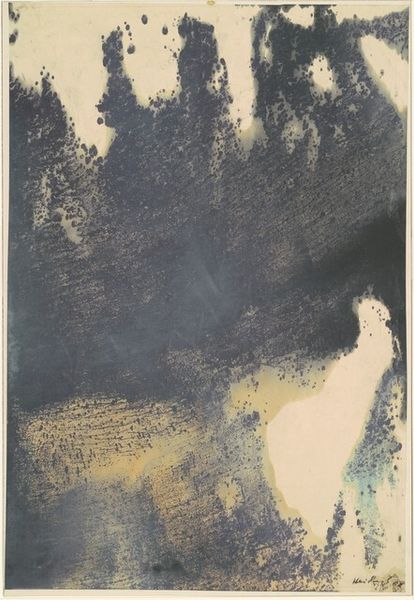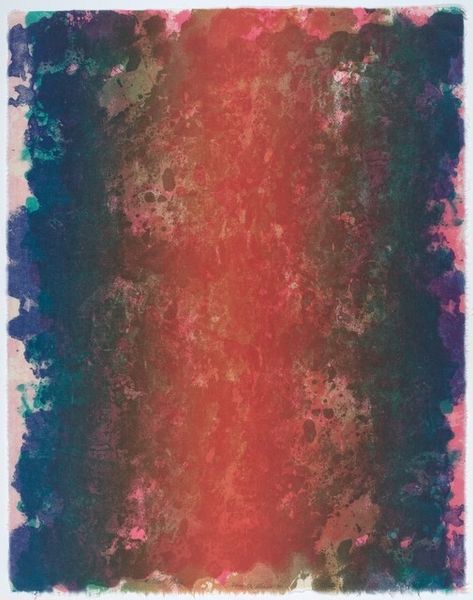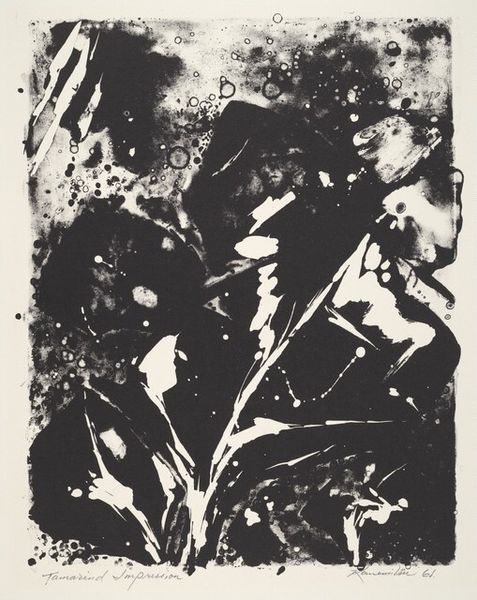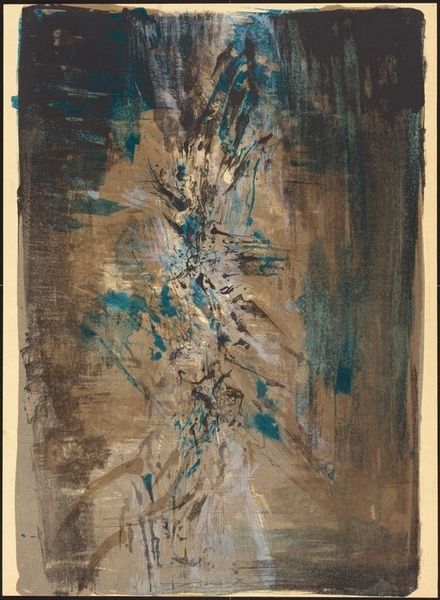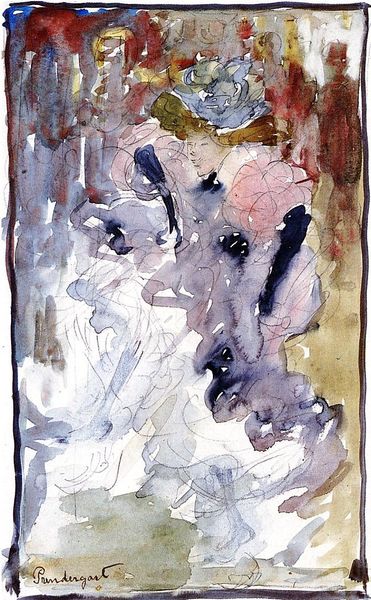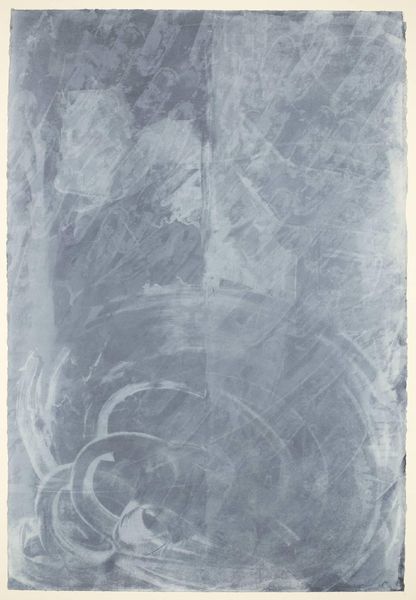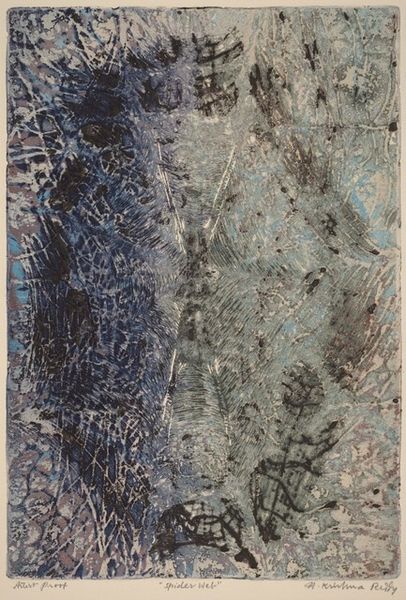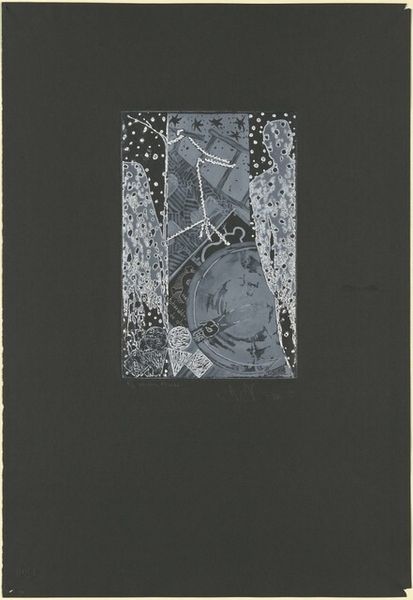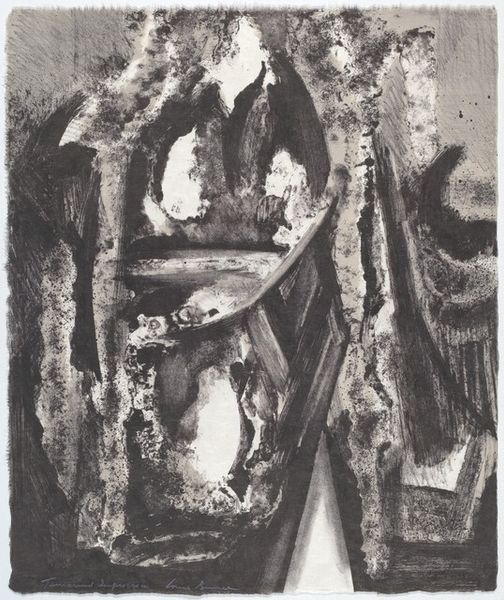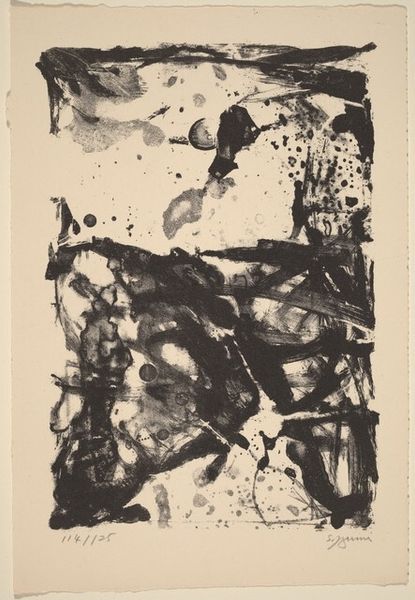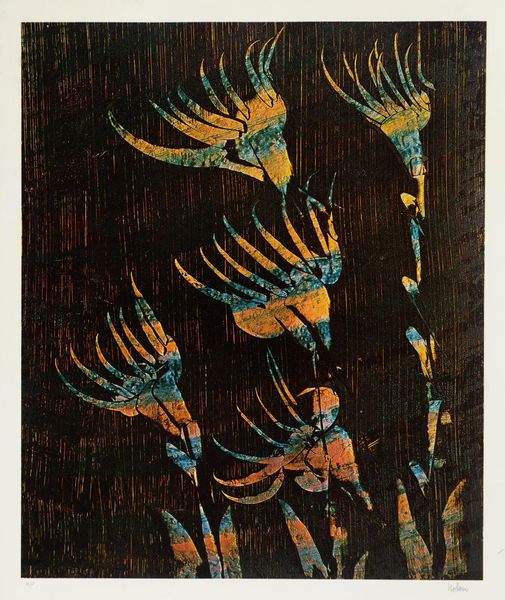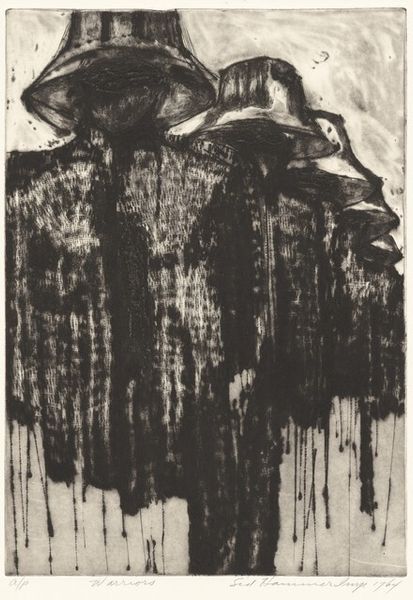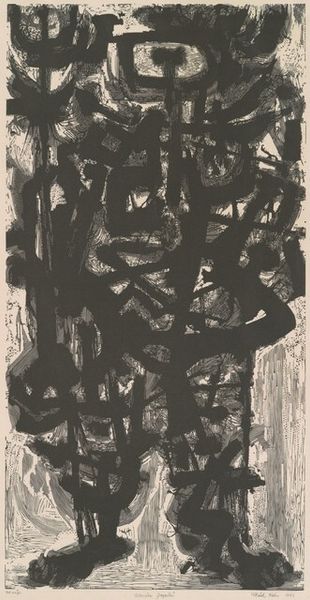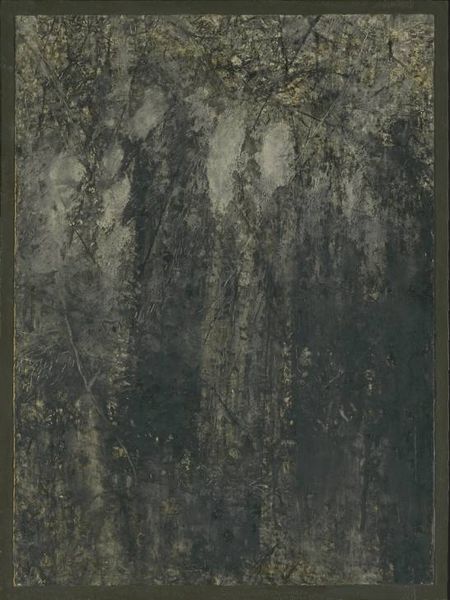
Copyright: Jean Fautrier,Fair Use
Curator: Standing before us is "Fleures noires", or "Black Flowers," an oil on canvas created by Jean Fautrier in 1926. Fautrier's work often explores themes of post-war anxiety and the fragility of life. Editor: Woah, this isn't your grandma's flower painting! It feels like a floral fever dream—or maybe what a botanist sees after too much caffeine. There’s something a little unsettling but captivating about these almost exploding blooms. Curator: The unsettling feeling, as you describe it, likely stems from the work's departure from traditional floral representation. It was painted during a time of immense social and political upheaval, a period when artists were challenging conventional forms of expression. Fautrier here engages with abstraction to mirror the disorientation of the interwar era. Editor: It's so murky. You've got these aggressive little strokes almost scratching the surface. Like he's digging for some light amongst all this…bleakness? But, within the darkness, these vibrant amber tones poke through like embers. Almost rebellious in a way. Curator: The thickly applied paint and muted palette create a sense of depth and texture, characteristic of the *matiérisme* prevalent in Fautrier’s works. It invites close inspection, urging the viewer to grapple with the tactile qualities of the painting. It has a very direct and almost brutish connection to post-war anxieties over industrialized violence, some would say. Editor: Brutish! I love that. Exactly—the flowers aren’t pretty in the conventional sense, and they're sort of dying here on the canvas! So they aren't so lovely or calming after all. This isn't some innocent garden—it’s a battleground where beauty struggles to survive. A total power statement. Curator: Perhaps that struggle for survival resonates with Fautrier's biography as well. Having faced considerable adversity during World War II, his subsequent work evolved to reflect his feelings about humanity and its treatment during wartime, this piece acting as an aesthetic foretelling of his late work and life's path. Editor: So, next time I want to send flowers with a real *message*, I might just show the recipient this piece. I feel this "Black Flowers" gets you right in the solar plexus. A really lasting image. Curator: Indeed. Fautrier's contribution to abstract expressionism encourages us to view the art piece as a space where historical experience and individual expression intertwine.
Comments
No comments
Be the first to comment and join the conversation on the ultimate creative platform.
